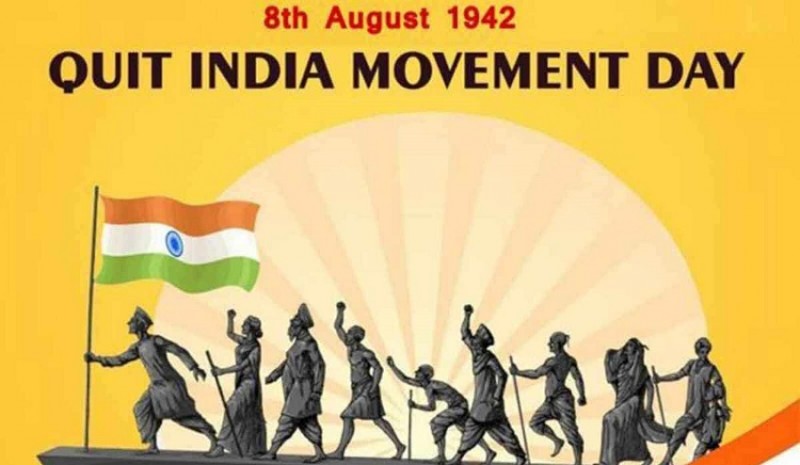
Quit India Movement Day: August 8 is a day of profound significance in India's history, marking Quit India Movement Day—a momentous occasion that epitomizes the nation's relentless quest for freedom. On this day in 1942, Mahatma Gandhi and the Indian National Congress issued a powerful call for "Do or Die," demanding an end to British colonial rule and a swift transition to independence. This declaration was more than a political plea; it represented the collective resolve of the Indian people to achieve self-governance.
The Quit India Movement: An Overview
The Quit India Movement, launched in August 1942, was the final major push against British rule in India. Unlike previous movements, this one saw active participation and control from the masses. This article explores the Quit India Movement of 1942, detailing its origins, development, achievements, and significance.
What Was the Quit India Movement?
On August 8, 1942, at the Bombay session of the All India Congress Committee, Gandhi launched the Quit India Movement. This mass civil disobedience campaign aimed to secure India's independence from British rule.
Objectives of the Quit India Movement
The primary goal of the Quit India Movement was to demand an immediate end to British rule, striving for complete independence. The slogan "Quit India" became a rallying cry for the movement, symbolizing the demand for British withdrawal.
Background and Reasons for the Movement
The movement was initiated during World War II when Britain anticipated India's full support. However, the Indian National Congress demanded independence before contributing to the war effort.
The Cripps Mission of 1942, which offered limited self-government post-war, was rejected by Congress as insufficient. Gandhi, frustrated by this and the ongoing war, took a firm stance to press the British government to leave India.
Several factors contributed to the launch of the Quit India Movement:
Proclamation and Beginning of the Movement
On July 14, 1942, the Congress Working Committee adopted the "Quit India Resolution" in Wardha. Gandhi's launch of the movement on August 9, 1942, was met with his arrest and those of other Congress leaders. This led to widespread violent demonstrations across India, including hartals, strikes, and processions.
In the absence of leaders, non-violent methods gave way to disruptive actions such as railway disruptions and the burning of police and railway stations.
British Response to the Movement
The British response was harsh, involving mass arrests, public flogging, and violent repression. Thousands of people died as a result of this brutal crackdown. The Congress was declared an illegal association, and the police employed severe measures to suppress the unrest. Despite these efforts, the movement's mass phase was largely quelled within 6-7 weeks.
Underground Activities and Persistence
Even under severe repression, the movement found ways to continue underground. Prominent leaders like Aruna Asaf Ali, Achyut Patwardhan, and Jayaprakash Narayan played key roles in maintaining the movement's morale and operations. The underground network facilitated the distribution of funds, materials, and information. Notably, Congress Radio, operated by Usha Mehta, broadcast clandestine news from various locations in Bombay.
Quit India Movement Day serves as a reminder of India's determined struggle for freedom and the sacrifices made by countless individuals to achieve independence.